Museveni, Ruto back $500m Tororo steel plant to transform regional value chains
The two heads of state described the investment as a bold step towards ending the extraction of African minerals without value addition and creating thousands of jobs across Uganda and East Africa.
President Yoweri Kaguta Museveni and Kenyan President William Samoei Ruto presided over the groundbreaking of the Devki Mega Steel Plant in Kayoro village, Osukuru County. (PPU photos)
________________
The launch of a $500 million steel project in Tororo has been hailed as a turning point for regional industrialisation, after President Yoweri Kaguta Museveni and Kenyan President William Samoei Ruto presided over the groundbreaking of the Devki Mega Steel Plant in Kayoro village, Osukuru County.
The two heads of state described the investment as a bold step towards ending the extraction of African minerals without value addition and creating thousands of jobs across Uganda and East Africa.
The facility, developed by Kenyan industrialist Dr Narendra Raval of the Devki Group, is designed as a vertically integrated steel operation.
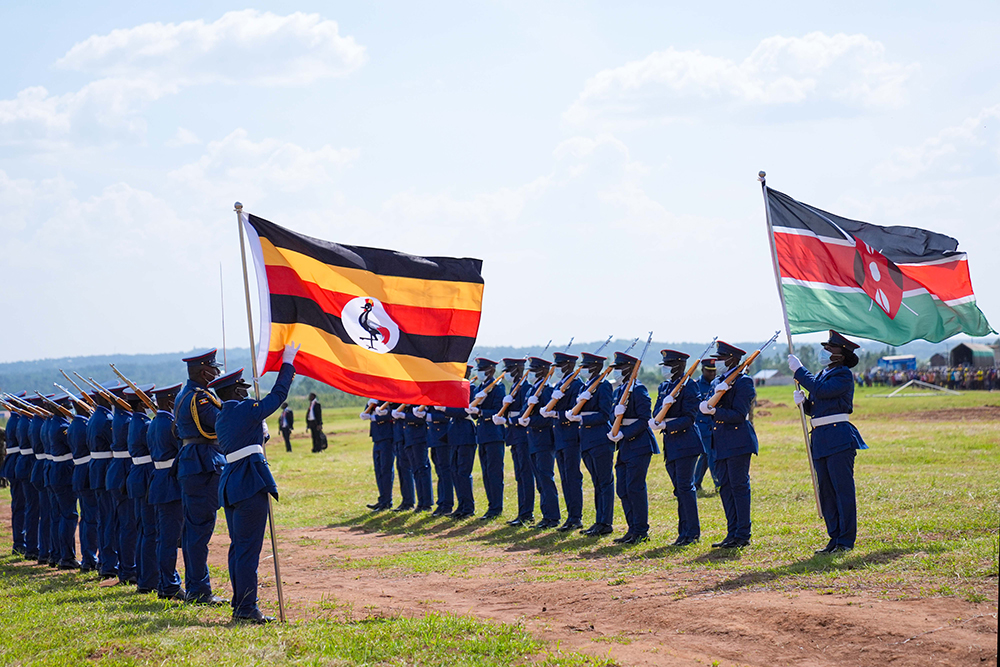
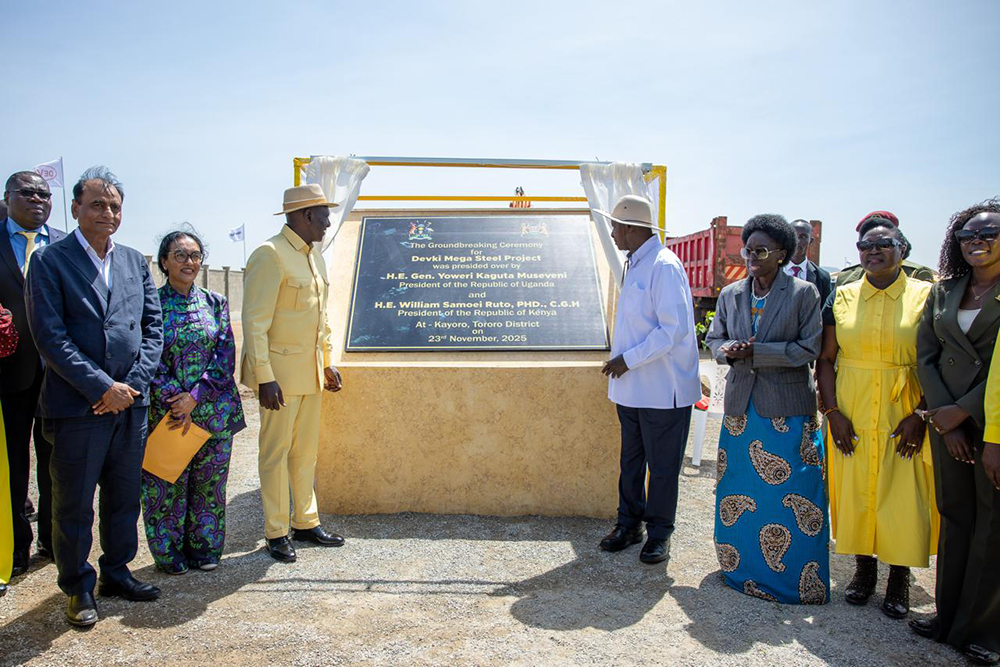
According to projections shared during the event, the plant will employ 15,000 Ugandans across Tororo and Mbarara at commencement, supported by additional work already undertaken in Tororo, Mbarara and the upcoming Kabale Iron Ore refinery.
President Museveni said the project comes at a strategic moment in Africa's long struggle for economic independence, arguing that the continent has been on the losing end of global production chains for centuries.
He said that for more than 500 years, Africa had endured a cycle of economic loss, beginning with the slave trade and continuing through modern practices that extract raw materials and export them without value addition.
"Today, with the groundbreaking ceremony of the Devki Mega Steel project in Tororo, alongside H.E. President William Ruto of Kenya, we are in the process of liberating Africa", President Museveni said.
He added that the project represents a deliberate effort to reverse the export of African resources and opportunities.
In his remarks, he noted, "At full operationalisation, we shall be one step closer to reversing the squandering of Africa’s resources—human, mineral, jobs, and foreign exchange."
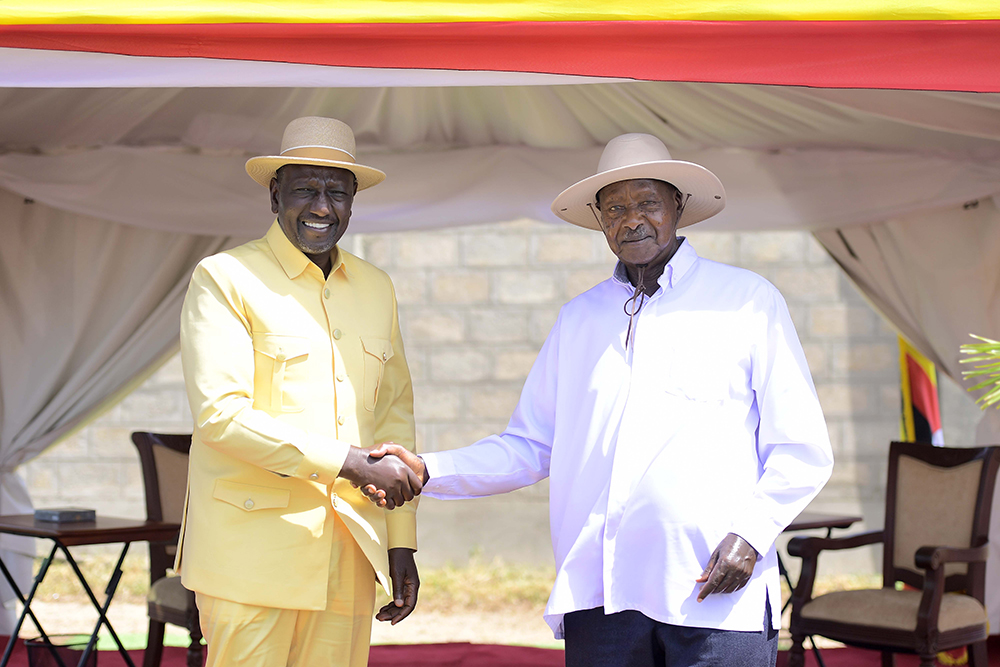
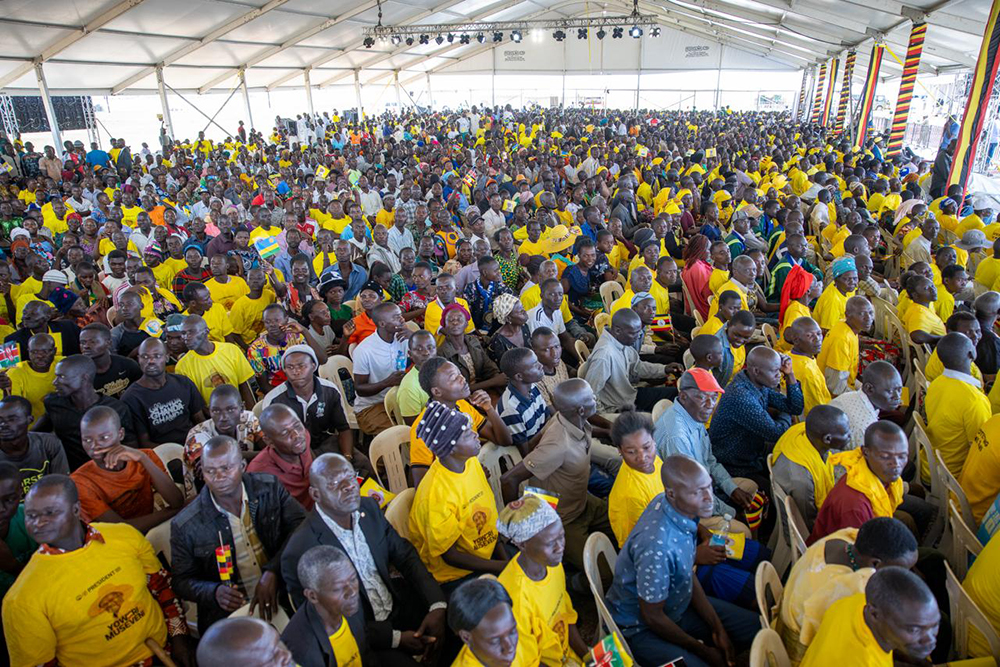
The President thanked his Kenyan counterpart for encouraging Dr Raval to invest in Uganda, describing it as recognition that Uganda holds an important resource base for regional industry.
He said regional cooperation remained essential, particularly as countries move to strengthen manufacturing and supply chains.
Dr Raval, who heads the Devki Group, said the Tororo project is built on the belief that African countries must prioritise domestic production in order to expand employment and reduce dependence on imports.
He emphasised that the vast majority of the jobs created would benefit Ugandans, particularly local communities.
He said, "At this juncture, I would like to promise the Tororo community that whatever employment will be in the factory, 90 percent of the jobs will be allocated to Tororo and the surrounding communities only."
The industrialist added that the steel sector plays a decisive role in economic development and that failure to manufacture within Africa comes with serious consequences.
He told the gathering, "Importing steel is importing poverty," and called for increased production within African borders in order to empower the youth.
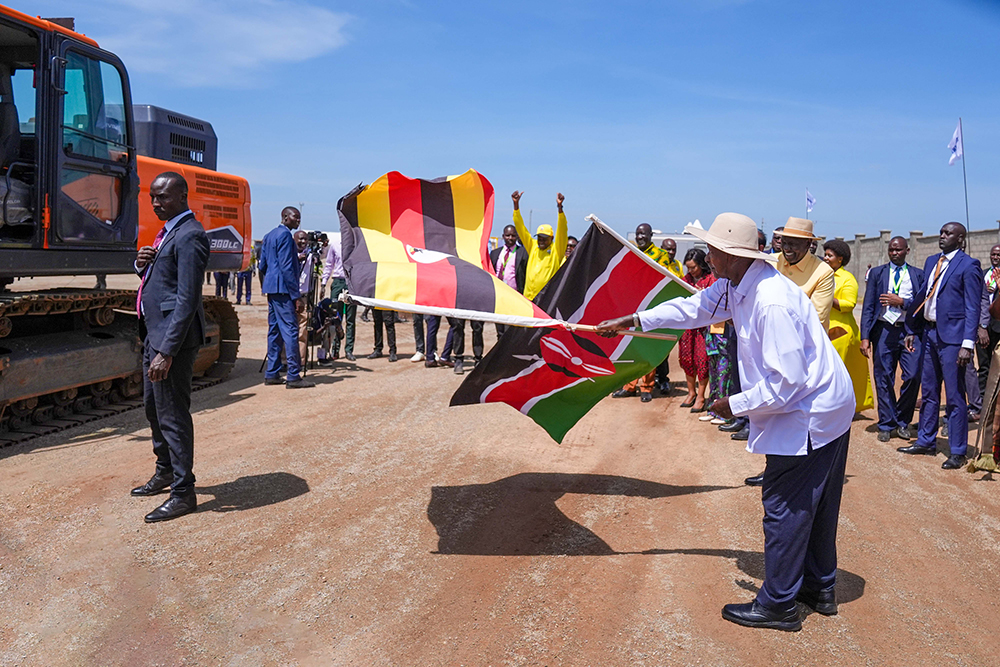
He also credited President Ruto for stabilising Kenya’s economy, saying the reforms implemented had created a favourable investment climate across the region.
President Museveni revealed that Dr Raval plans to start another major iron ore project in Kabale, which is expected to create more than 16,000 jobs.
He urged Ugandans not to frustrate large investors with compensation disputes and assured them that the government would handle any required compensation.
"The man is going to invest $500 million here, so please don’t bother him about money for compensation. The government will handle that," the President said.
He also pointed to the financial burden Uganda faces due to overreliance on imported goods, estimating the annual loss at $5 billion.
He added that Uganda’s current dependence on road transportation for cargo was inefficient and welcomed the planned extension of the Standard Gauge Railway towards Tororo, saying it would benefit industries such as Devki and reduce transport costs.
"What is happening here shows you that the future is bright, and the rest will come", President Museveni concluded.
President Ruto described the ceremony as an important moment for Africa’s industrial trajectory, noting that the Tororo plant would strengthen regional value chains and support youth employment.
He said, "We convene here not just to commission a factory, but to usher in a new, audacious chapter in Africa’s industrialisation ambitions."
Ruto commended President Museveni for his commitment to regional economic integration and said such cooperation made large-scale projects possible. He told the crowd that the Tororo facility would expand to 20,000 employees across the region by 2027.
The Kenyan leader also noted rising steel demand across the continent. He said Africa’s consumption is projected to grow from 39.5 million tonnes in 2024 to 52 million tonnes by 2034, underscoring the importance of increasing domestic production capacity.
He added that Kenya would in January launch the next phase of the Standard Gauge Railway from Mombasa to Naivasha and from Rironi to Malaba, before its eventual extension to Tororo to strengthen manufacturing logistics.
The groundbreaking was attended by several senior government officials, including First Deputy Prime Minister and Minister for East African Community Affairs, Rebecca Kadaga, who said the project was a major milestone for both Uganda and the wider EAC region, highlighting its significance for industrial integration.
Energy minister Ruth Nankabirwa described the event as historic and called for the factory to deliver tangible benefits to communities across the country once production begins. She thanked President Ruto for his support of the investment and commended the collaborative approach that made the project possible.